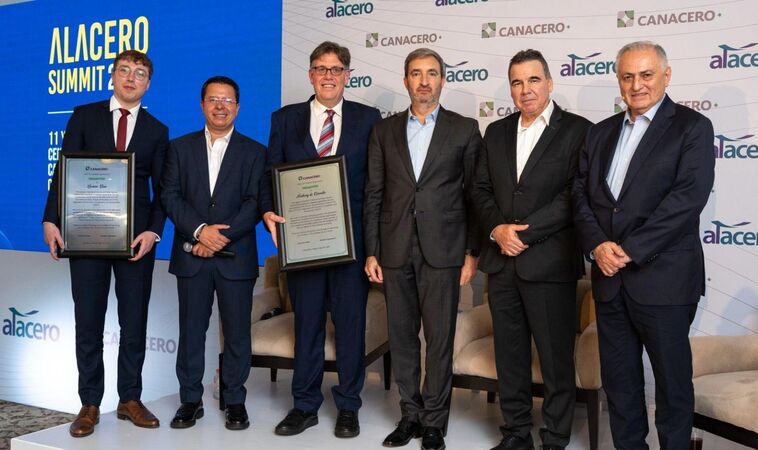Latin American steel industry raises concerns over impact of unfair trade
by David Fleschen

Industry leaders from across Latin America gathered this week in Monterrey to address the growing impact of global market distortions on the region’s steel sector. The event, titled “Unfair trade and its impact on Latin America,” was organized by the Latin American Steel Association (Alacero) and Mexico’s National Chamber of the Iron and Steel Industry (Canacero). It brought together international experts, policymakers, and representatives from across the industry for in-depth discussions on trade dynamics and competitiveness.
Anthony De Carvalho, Head of the Steel Unit at the Organisation for Economic Co-operation and Development (OECD), highlighted the significant challenges facing Latin American steel producers. “Market distortion is at the heart of this crisis,” he said, referring to state subsidies in countries such as China, which he described as ten times higher than in OECD member states and five times higher than in some non-member countries.
De Carvalho warned that global steel overcapacity could reach 721 million tonnes by 2027, driven by ongoing capacity expansions in China, India, and Southeast Asia. “This poses a serious threat not only to Latin America, but also to small and medium-sized producers around the world,” he stated.
Luciano Giua, Economist and Policy Analyst at the OECD, emphasized that the scope of subsidies is just as concerning as their scale. He pointed to both direct and indirect support mechanisms in China, including unrestricted access to credit for loss-making companies, tax exemptions, subsidized loans, discounted energy and raw materials, and lower environmental standards.
Another focus of the event was the sharp rise in Chinese steel exports. In 2024, China – which produces more than half of the world’s steel – exported over 110 million tonnes of finished and semi-finished products, including 14.2 million tonnes to Latin America. This represents a 129% increase compared to 2019.
Concerns were also raised about indirect imports of manufactured goods made with subsidized Chinese steel. Between 2008 and 2024, such imports in sectors including automotive and household appliances increased by 338%, reaching over 4.9 million tonnes. “The challenge now extends beyond primary steel products,” De Carvalho said. “Entire value chains are being affected, especially small and medium-sized enterprises.”
Ezequiel Tavernelli, Executive Director of Alacero, warned of a wider trend of deindustrialization in the region. “Over the past 25 years, Latin America has lost four percentage points of industrial GDP, and the share of manufacturing in total exports has declined by five points,” he stated. “We must act quickly and in a coordinated way to protect the 1.4 million jobs that depend on the steel value chain.”
De Carvalho concluded: “Industries that operate under fair market conditions are facing unfair competition. This is no longer just a trade concern – it is an existential threat to the long-term viability of the steel industry.”
Sourc and Photo: Alacero

